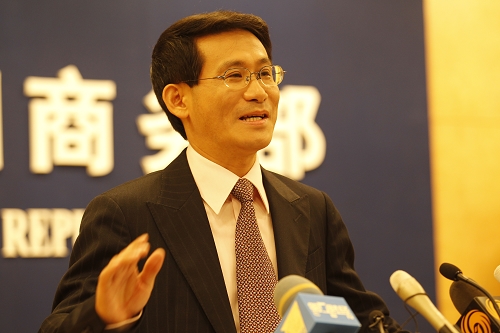Debt crisis may cause more trade friction
 0 Comment(s)
0 Comment(s) Print
Print E-mail
China Daily, September 21, 2011
E-mail
China Daily, September 21, 2011
The European debt crisis may lead to increased trade friction and hurt China's exports, Shen Danyang, Ministry of Commerce spokesman, said on Tuesday.
|
|
|
Shen Danyang, Ministry of Commerce spokesman |
Recent months have seen an increase in European Union (EU) trade remedy cases targeting China.
In mid-September the EU imposed anti-dumping duties ranging from 26.3 percent to 69.7 percent on imports of ceramic tiles from China.
"As the debt crisis worsens ... trade friction will grow," Shen told a regular news conference.
"This is detrimental to China-EU economic and trade relations."
He also said that China is disappointed it has not been recognized as a market economy under world trade rules by the EU, despite its rapid economic transformation.
This lack of recognition makes it easier for other nations to launch trade remedy cases against it.
During last week's World Economic Forum in Dalian, Liaoning province, Premier Wen Jiabao suggested that the EU should accord the country full market economy status (MES).
Many observers regarded Wen's remarks as a coded message that there could be a trade-off between China offering help and the EU granting MES.
After 30 years of reform and opening-up, China has completed the transformation from a planned economy to a market economy, Shen noted.
"But the EU still does not recognize China's full market economy status. China is very disappointed."
He added that the MES is not a technical issue, but a political decision. The refusal to grant China the status does not serve anyone's long-term interests, Shen said.
He also said that China's support for the EU in coping with its debt crisis is unconditional and not related to the MES issue.
"There is no link between the two," he said.
"China has set no preconditions for offering help to others. We only hope to be treated with respect when we treat others sincerely."






